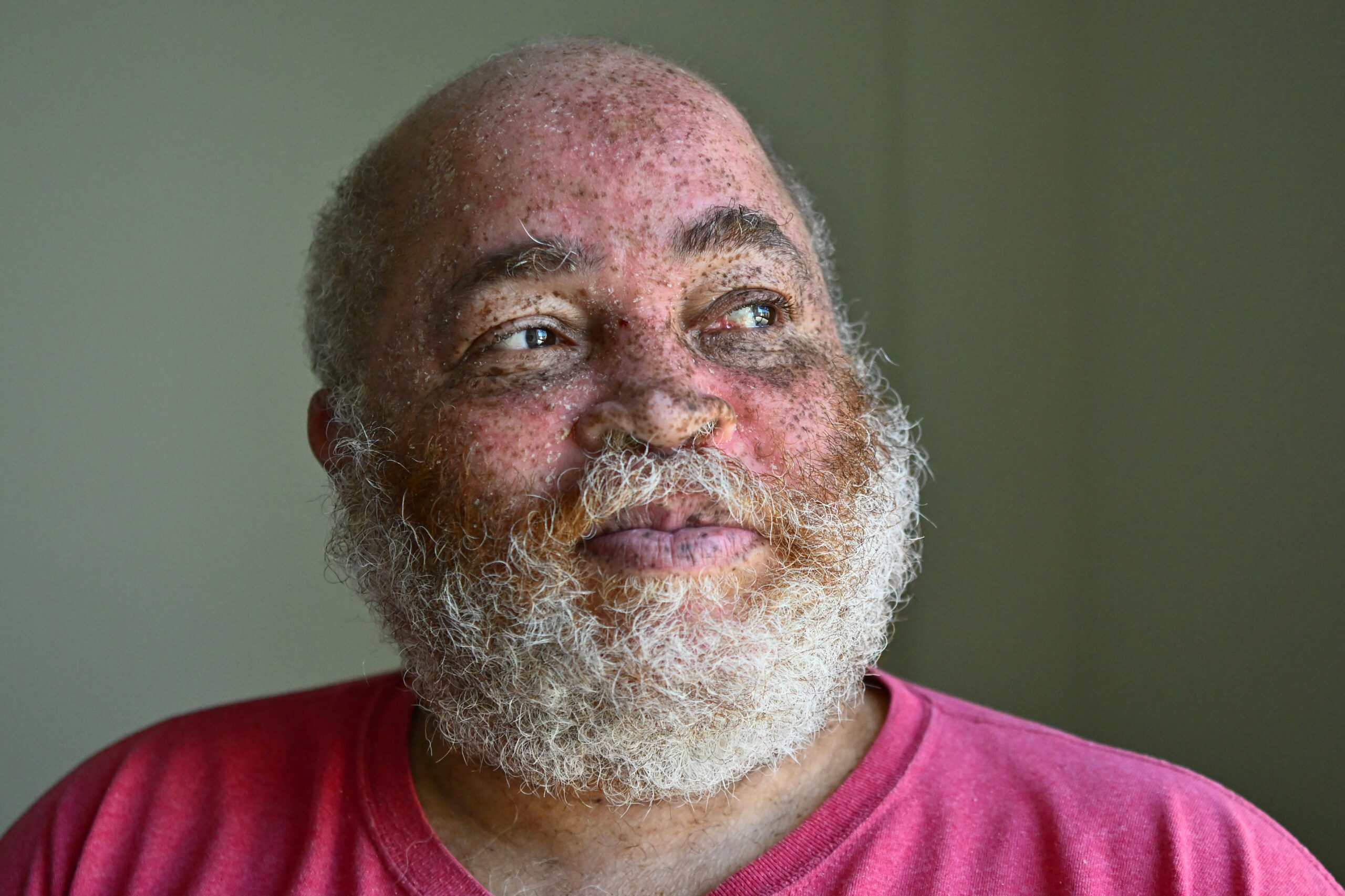Just a five-minute walk from Berkeley’s Downtown BART station, around a quiet corner by a local fire station, a modern but unassuming building stands six stories above the street. Inside sits the aptly named Hope Center, a new Berkeley Food and Housing Project development that will help house hundreds of people in need.
People like Michael Williams, a 62-year-old father of five who is constantly smiling behind his Raiders face mask.
The Washington native moved to the Bay Area in 1988 with his now ex-wife and eldest son. He had a job, a home, a business diploma and a car. However, an introduction to drugs ended up taking him down a dark path. One that led to prison time for theft, a divorce and, eventually, 30 years of sleeping on the streets.
Williams stopped using drugs in 2013 and hasn’t been in any legal trouble in more than 13 years. He was living in his car for the first period of his homelessness, which started in 1991, until it was towed while he was ordering dinner in a nearby McDonald’s.
After that, he turned to the streets, where he stayed until August of last year. To survive, he hawked the Street Spirit, a newspaper sold by homeless people, returned recyclables, and every so often, tried to make people laugh.
“I would stand in front of the grocery store and say ‘Sir, can I tell you a joke in exchange for a couple of dollars?’ ” Williams said. “If people didn’t have time, I would say ‘No problem, ma’am. You have a good day and if you have a moment, please say a small prayer for Michael.’ ”

His prayers were answered when he was connected to the Berkeley Food and Housing Project last year.
The agency provides emergency food and shelter, transitional housing and permanent supportive housing to individuals and families experiencing homelessness. What started out as a small local meal program in 1970 has grown into an agency with 115 employees that serves the counties of Alameda, Contra Costa, Solano, San Joaquin, Sacramento and Amador.
BFHP’s new Hope Center is a project decades in the making, with 32 shelter beds, 53 permanent supportive housing units, 12 transitional housing beds for veterans, and on-site medical and mental health services. Case managers are also located on site, along with a Veterans Affairs office, and plenty of staff to facilitate connections to health and employment services. Chef and Meals Program Manager Andre Green runs a large commercial kitchen at the center where residents can have a daily community meal with other people in the area who might need support.
“The goal of the Hope Center is to be inclusive; a place where everyone feels welcome and supported. We have robust services and programming onsite, including the Community Meal, which offers our residents and neighbors the opportunity to connect with each other and build connections and community over a hot meal on daily basis,” said Berkeley Food and Housing Project CEO Calleene Egan.
Through the East Bay Times’ annual Share the Spirit program, which supports charitable organizations in Alameda and Contra Costa counties, the Berkeley Food and Housing Project is hoping to raise $10,000 to provide special holiday meals for those in need.
“Food is universal and healing and can be a bridge that connects our team with clients to start the housing journey, as well as clients with each other for peer-to-peer support,” she said.
Williams has been partaking in the community meal program since September, when he walked into a brand-new, one-bed apartment in the Hope Center.
In the years before, he got good at finding local food and laundry programs, and he carved out spots to live in the most unlikely of places.
“There was one underground parking lot where if you looked behind the garbage can, you would have seen a vent that was really a door into a storage room. I had a little bed, a plug; I stayed there for eight months,” he said.
Dentist office basements and abandoned buses also became sites for makeshift shelters. Williams said he was once discovered squatting in an abandoned duplex, and negotiated with the owner to stay in exchange for fixing the building’s dry rot. He lived there for over four years — the longest he’s stayed in one place.
A wooden tent-shaped structure he built behind a church was another favorite location. “Everybody knew me there,” Williams said. “One time the police pulled up and asked me if I had done something. A neighbor came out and told them that I was the neighborhood watch. Another time one of the neighbors came out with an apple pie for me straight out of the oven.”
It was a kindness not seen again until he was connected to the Berkeley Food and Housing Project last year.
“God blessed me with this place. If I want to be alone, I can just close my door. If I want to talk to someone, I just go downstairs,” Williams said. “The staff here are incredible. You can tell when someone goes to work and their heart is in it. Everyone will give you the time of day or stop to check if you’re OK. You won’t get that anywhere else. People here really need this place.”
